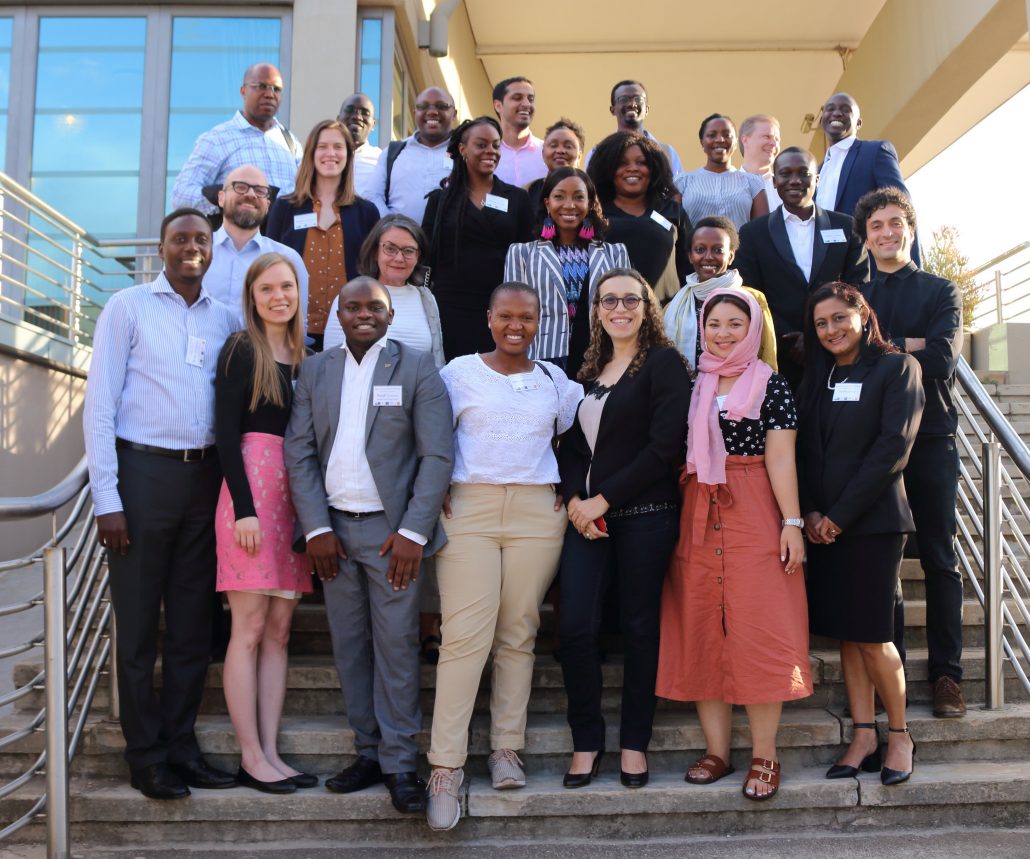A year ago, we had the pleasure and privilege of convening the Digital | Economy | Africa Conference at the School of Tourism and Hospitality, University of Johannesburg. This conference brought together key international experts and stakeholders and covered the themes of digital entrepreneurship, digital jobs/gig work, information economy, innovation hubs, and the changing geographies of information economy on the African continent.
Our discussions over the two conference days centered on the potentials and realities of African digital economies and in light of empirical evidence from all parts of the continent, critically examined the view often held by local policymakers, which sees Arica’s rapidly changing connectivities leading to changes in human welfare and economic development. The conference programme and a selection of presentations continue to be accessible on the event microsite.
The work we’ve continued to carry out within the project over the past year has resulted in additional outputs, which provide further evidence into these themes, and include:
- Anwar, M. A.and Graham, M. (2019) Economic and social upgrading in call and contact centers: evidence from South Africa, African Geographical Review, Special Issue on Geographies of Southern Africa.
- Graham, M. and Anwar, M. A. (2019) The global gig economy: towards a planetary labour markets?First Monday.
- Graham, M. (2019). There are rights ‘in’ cyberspace. In B. Wagner, M.C. Kettermann, and K. Vieth (Eds.) Research Handbook on Human Rights and Digital Technology(pp. 24-32).
- Anwar, M. A. (2019) Most call centre jobs are a dead end for South Africa’s youth, The Conversation, https://theconversation.com/most-call-centre-jobs-are-a-dead-end-for-south-africas-youth-117516.
- Anwar, M.A. and Graham, M. (Forthcoming) “Digital labour at economic margins: African workers and the global information economy“, Review of African Political Economy.
- Anwar, M.A. and Graham, M. (Forthcoming) “Between a Rock and a Hard Place: Freedom, Flexibility, Precarity and Vulnerability in the Gig Economy in Africa“, Special Issue Competition and Change: the Journal of Global Political Economy.
As the project is nearing its completion, the members of our organizing team have taken up new positions, and while we continue to report on their project work on this website, you can follow their wider work through their new institutes:
- Dr. Amir Anwar continues his research as a Lecturer in African Studies and International Development in the School of Social and Political Science at the University of Edinburgh
- Dr. Michel Wahome continues her work as a Research Fellow at the Department of Law at the University of Strathclyde.
- Sanna Ojanperä continues her research as a Doctoral Student at The Alan Turing Institute and the Oxford Internet Institute at the University of Oxford
Much is said about the potentials of the digital economy in Africa both within the private and public spheres, but predictions and proclamations continue to often be made in the absence of evidence. The conference provided a valuable opportunity to exchange knowledge between researchers, the public, and local communities, and identify and bridge information gaps. The digital economy continues to change rapidly, and research opportunities raise in particular around understanding the ways in which risks can be tackled and economic opportunities can be harnessed.
The past couple of weeks have witnessed an unprecedented disruption to the global system, as countries respond to the Covid-19 epidemic, and around the world this has drawn attention to the position of those working in the gig economy and relying on digital platforms. As cities and entire nations are now self-isolating, the ability to work remotely through a digital platform might prove a valuable asset, as increasing numbers of workplaces are seeking to operate online for the foreseeable future. With restrictions on mobility, home deliveries of groceries and other consumer goods are enabling the flow of goods while cutting down on possibilities for transmission of the infection. While these instances of digitally enabled work offer us tools and strategies to respond to the new economic realities, the workers logging in tasks on digital platforms still largely remain without protections and benefits comparable to those available in the more traditional economy. As every nation is seeking to best address the situation at hand, the importance of understanding and valuing the potentials and challenges related to the digital economy remains as crucial as ever.
